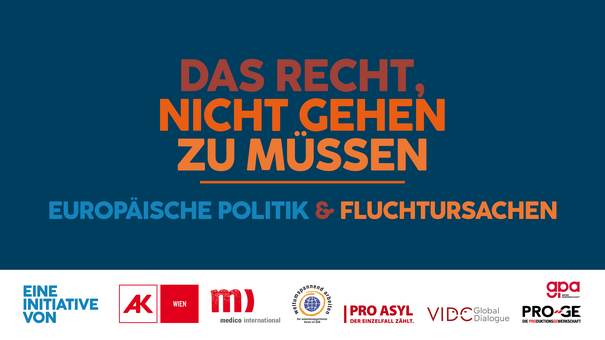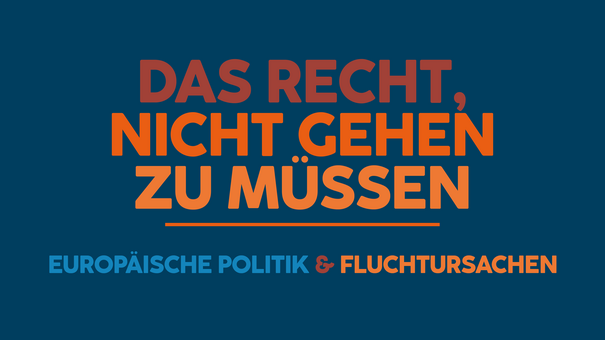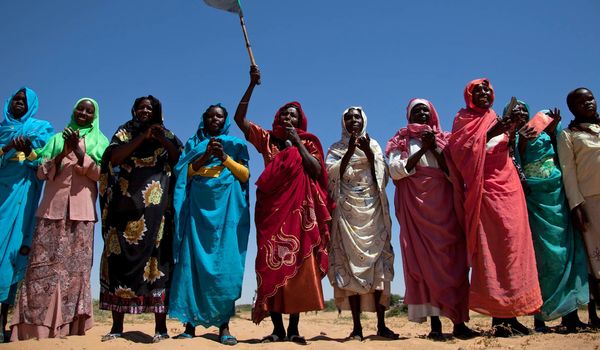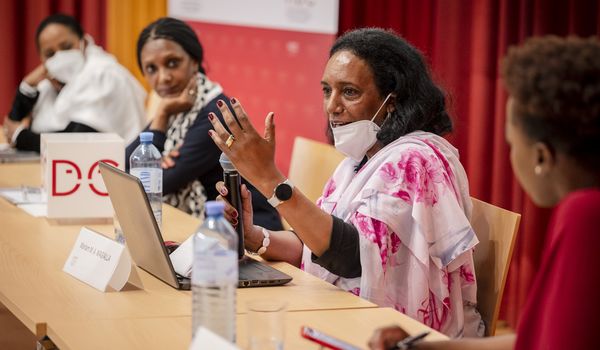Text ist nur in englischer Sprache verfügbar.
For Ishraga Hamid, an Austrian-Sudanese writer, activist and conference initiator, building a network of women for peace has been a long-held dream. Starting with a WhatsApp group, she followed with an online conference entitled “Mendy shines from Vienna with global visions,” named after Banat Mendy Bent El sultan Agabna, a forgotten anti-colonial freedom fighter from the Nuba mountains. In June 2021, a group of women from different countries, with diverse experiences and manifold expertise came together to share their views and unite in a common vision.
Due to the Covid-19 pandemic, fewer than half the group were able to meet in Vienna. The others joined via their screens. The conference was hosted by the VIDC as it deals with two focal areas of the institute’s work, as Franz Schmidjell mentioned: the role of women in peacebuilding and the transnational engagement of diaspora communities.
The opening panel provided insight into some of the structural causes of the diverse and complex conflicts in the Horn of Africa.
The event takes place within the campaign "Das Recht, nicht gehen zu müssen - Europäische Politik und Fluchtursachen".
Women represented 60 % the protesters in the Sudanese revolution
The 2018/19 revolution in Sudan was orchestrated by Sudanese Professional Associations, an umbrella association of different Sudanese trade unions, all over the country. Women and youth were in the forefront of the struggle and many sacrificed their lives. Three thousand martyrs died or disappeared without a trace, other women were imprisoned and raped. Today, the representation in the transitional bodies of women remains low: of 14 members in the Supreme Council only two are women. Within the executive body, out of 20 ministers only four are women. The armed rebel groups have no female representation.
Environmentalist and social activist, Eiman Abulgasim Seifeldin, emphasized the correlation between conflict, migration and the climate crisis. The drought around Lake Chad has forced people to migrate towards Sudan, while others came from Eritrea and Ethiopia. But Sudan is a fragile state, unable to accommodate these refugees or provide them with a future. Environmental degradation has become one driver of conflicts. Other triggers include the battle over resources, the contested processes of state formation and/or identity struggles. All these factors result in human rights violations, which affect women in particular.
The same men who perpetrate crimes sit in peace negotiations
Asia Abdulkadir is the Somalian country coordinator for German Kindernothilfe and the former chairwomen of the Eritrea Women Network. Ms Abdulkadir discussed the current crisis in Tigray and explained why it is important that the international community strengthens civil society actors and women-led initiatives in order to enable sustainable peace.
One year after what seemed to be a promising peace treaty was signed in 2018, in Jeddah, Saudi Arabia, the situation was reversed and the borders officially closed. Repressive measures increased and the regime in Asmara targeted religious groups, while in Ethiopia the tension between Tigray and Abiy’s administration grew daily, ultimately leading to the outbreak of war. Two million people have been displaced. Around 4.5 million people in the region require urgent aid. Ethiopian and Eritrean troops are accused of unspeakable atrocities.
The peace process between Eritrea and Ethiopia failed to adequately consult local stakeholders, including TPLF. Asia Abdulkadir: “We have seen again and again that a peace deal is likely not to last without the buy-in from all relevant stakeholders, including women-led initiatives.” She stressed that women in the Horn of Africa region have a very strong focus on community rather than on themselves as individuals, so they are able to bring crucial community perspectives to the table during peacebuilding discussions. She was critical of the fact that the same men who are perpetrating crimes sit at the peace negotiations, while victims, including women, are left out.
Change of production patterns and migration
Mariam Wagialla is a spatial planner and researcher from Khartoum living in Austria. She approached the issue of conflicts in the Horn of Africa from a historical and gender perspective.
Many conflicts are portrayed as having ethnic or cultural causes. But the deeper roots lie within the control over resources, regardless of whether these resources are on the earth’s surface, such as agriculture, pastureland, surface water and waterways, or inside the earth, such as minerals or oil. Agricultural production patterns in Sudan were changed through colonialism, resulting in the disappearance of communal land ownership and traditional conflict resolution mechanisms. Colonists introduced the requirement for land to be registered to the government The mechanisation of agricultural production began and the traditional subsistence economy was replaced by cash crop production.
The system of considering profits over community needs was continued by the authoritarian regimes which followed independence. The lack of services, infrastructure and alternative jobs contributed to the further marginalisation of the rural population and precipitated waves of urban migration. Initially these migrants were young men, but after 1970 entire families had no option other than to leave for the city to find jobs and food. During the Darfur crisis, women, children and the elderly were forced to flee due to widespread violence. With little or no education they found themselves stranded in the informal economy. Mariam Wagialla gave a critical review of the situation: “The utilitarian economic approach is a root cause of conflict, environmental degradation and forced migration.”
Progressive but inconsistent EU policies.
Rachel Ibreck is a researcher on human rights, justice and civic activism at the Goldsmith University in London. She gave a critical review on the African regional organisations and the approach of the European Union. Ms Ibreck has been involved in long-term collaboration with researchers and civic activists from the region.
According to Ms Ibreck, the interventions of the European Union (EU) and its member states in the politics of the Horn of Africa are fraught with inherent contradictions. On one hand, the EU has supported the regional human rights and justice architecture of the African Union (AU) and Intergovernmental Authority for Development (IGAD), as well as boosting opportunities for civil society engagement. Furthermore, the EU has committed to support women in leadership positions, funded programs to fight against sexual violence and assisted the region with humanitarian aid.
On the other hand, they have established alternative regional platforms to ‘govern’ migration, fostering security actors prone to the kind of ‘law enforcement’ that produces violent conflict and displacement. Such inconsistencies undermine efforts to advance progressive norms, principles and institutions at the regional level. Rachel Ibreck proposed that the EU should develop a Human Security Strategy for the Horn of Africa, which goes beyond the regional bodies and includes regionalised civil society organisations, especially women’s networks, yet still adheres to its own principles.
Einman Seilfedin added a concrete example and referred to the Khartoum process. Under the al-Bashir regime, the repressive Rapid Support Forces also controlled the borders. This meant that the EU funds for migration control indirectly went to the RSF. The EU-initiated Khartoum process worsened the human rights situation and resulted in the enslavement of migrants in Libya. In Sudan, huge numbers of human rights violations occurred in refugee camps controlled by militias like RSF. During the 2018 revolution, RSF units were responsible for the killing of hundreds of protesters. Other members committed atrocities and war crimes in Darfur.
Moderator Rita Isiba asked for concrete examples of diaspora support.
Eiman Seilfedin said that it is easier for women in the diaspora to raise their voices, because they now live in countries where they enjoy more freedom of expression. Women in the Horn of Africa on the other hand know the reality and their needs, however. they have no possibility to travel to participate in conferences, nor do they have no resources to tell their stories. Asia Abdulkadir agreed and added that many women in exile are professionals and are able to take these issues from the ground to the international level. Mariam Wagialla sees Ishraga Hamid as a good practice example, using social media to bring women in Sudan and Horn of Africa together to exchange knowledge.
What can be done to do counter sexual violence and protect women?
Eiman Seilfedin reported that rape was used as tool of war and that 60 % of women were victims of sexual violence. Also in “non-violent zones,” rape is used as a tool of torture in detention centres or in police stations. There is no punishment. Impunity invites others to do the same. Stricter laws and special courts are needed. Asia Abdulkadir described the establishment of sexual assault centre in Somalia. Previously, no one had discussed this issue, as women felt ashamed, but after this centre was set up, even religious leaders began to condemn the practice. Police started to investigate cases and a women’s legal association was formed. Urban planner, Mariam Wagialla added that the streets must be made safer and lighter, as many women have to go back from work during the night. Rachel Ibreck explained how they brought women activists together with male lawyers and local leaders to raise awareness about sexual violence.





